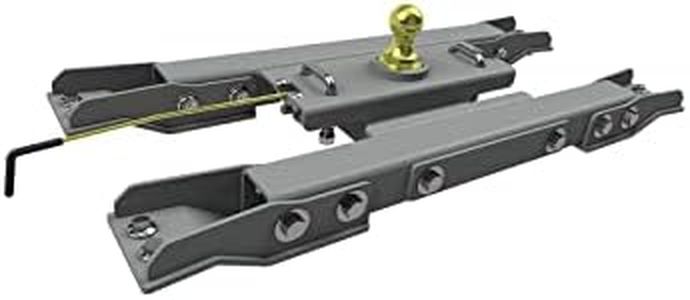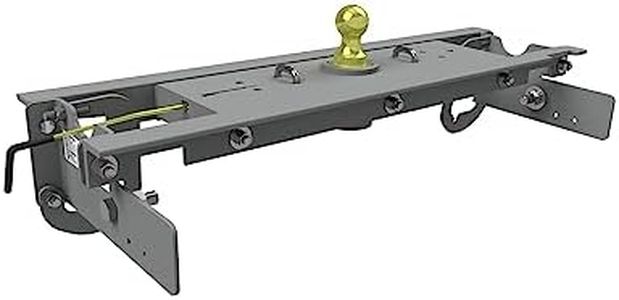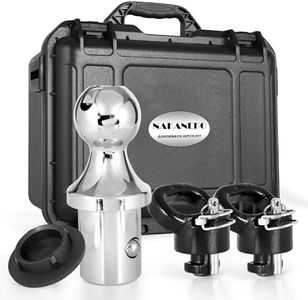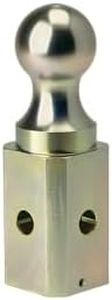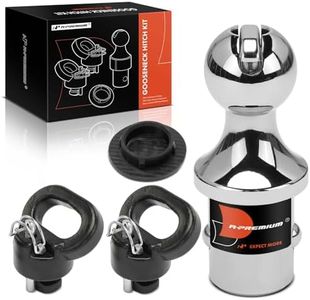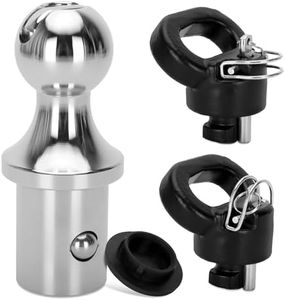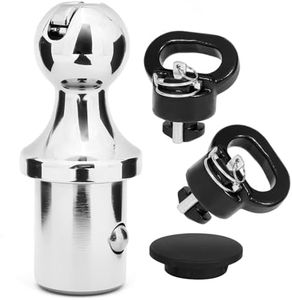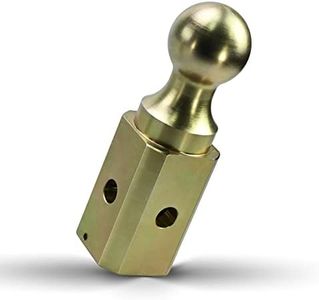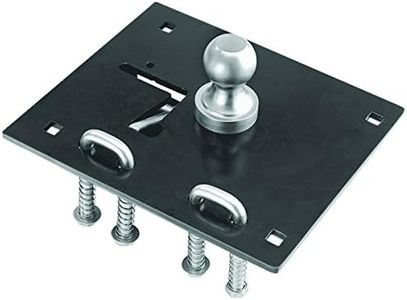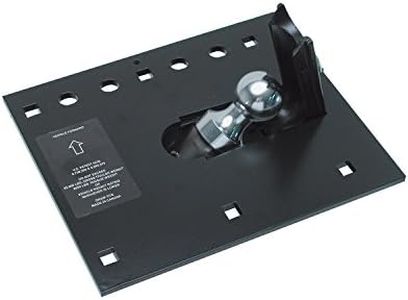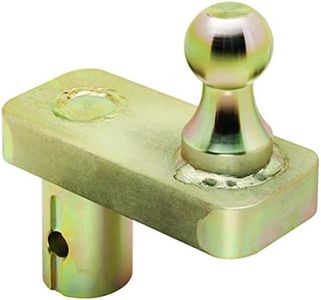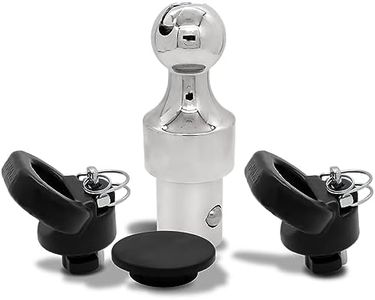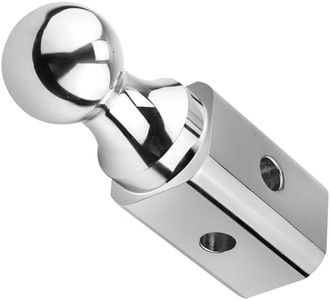We Use CookiesWe use cookies to enhance the security, performance,
functionality and for analytical and promotional activities. By continuing to browse this site you
are agreeing to our privacy policy
10 Best Gooseneck Trailer Hitch
From leading brands and best sellers available on the web.Buying Guide for the Best Gooseneck Trailer Hitch
Choosing the right gooseneck trailer hitch is important for safe and efficient towing. With many options out there, selecting the best fit can depend on the type of towing you plan, your vehicle’s capabilities, and how easy you want installation and removal to be. It's wise to focus on the major features and make sure the hitch matches your towing needs and vehicle setup, as well as compliance with local regulations.Towing CapacityTowing capacity refers to the maximum weight the gooseneck hitch can safely handle. This is crucial, as exceeding the rating can place undue stress on your vehicle and is a major safety concern. You'll find capacities typically ranging from 20,000 pounds to over 30,000 pounds. For lighter loads such as small utility or horse trailers, a lower capacity may be fine. If you’re towing large RVs, livestock, or heavy equipment trailers, look for higher-rated hitches. It’s always best to match the hitch capacity not just to your trailer, but also to the towing vehicle’s rated capacity.
Hitch Ball SizeThe hitch ball is the connection point between the trailer and the truck, and most gooseneck hitches use a standard 2 5/16-inch ball. This spec is important because the trailer coupler must match the ball size exactly for a secure fit. If you have an existing trailer, check its coupler size and select a hitch with the same ball size. While most setups use the standard size, there are rare exceptions, so always verify compatibility.
Installation TypeGooseneck hitches can be installed either above the bed (over-bed) or under the bed (under-bed) of the truck. Over-bed hitches are simpler to install and often less expensive, but they leave hardware visible in the truck bed. Under-bed hitches are more discreet and allow the bed to remain flat when the ball is removed, which is ideal if you need the bed clear for other uses. Choose the type that matches how frequently you use your truck for hauling versus carrying cargo in the bed.
Removability and StorageSome gooseneck hitches come with a removable ball that can be stowed away when not towing, leaving the truck bed flatter and more versatile. Others have a fixed ball. If you regularly switch between towing and using the truck bed for other tasks, a hitch with a removable or retractable ball might be best for your lifestyle. If your truck is dedicated to towing, a fixed ball can be more straightforward.
Vehicle CompatibilityNot all gooseneck hitches fit every truck. Compatibility factors include the make, model, year, and bed length of your pickup. This is critical because improper fit can compromise safety and make installation difficult. Always confirm with the hitch manufacturer that their product is designed to fit your specific vehicle before buying, especially if you have a newer or unusually configured truck.
Mounting SystemHitches may use different mounting methods, such as custom-fit brackets, rail systems, or factory-prepared puck systems. Some vehicles come with pre-installed prep packages that make installation easier. This matters because factory-prepped trucks may allow you to drop a compatible hitch in without drilling, while other setups require more involved installation. Consider what’s already on your vehicle and whether you prefer a simpler bolt-in or drop-in solution.
